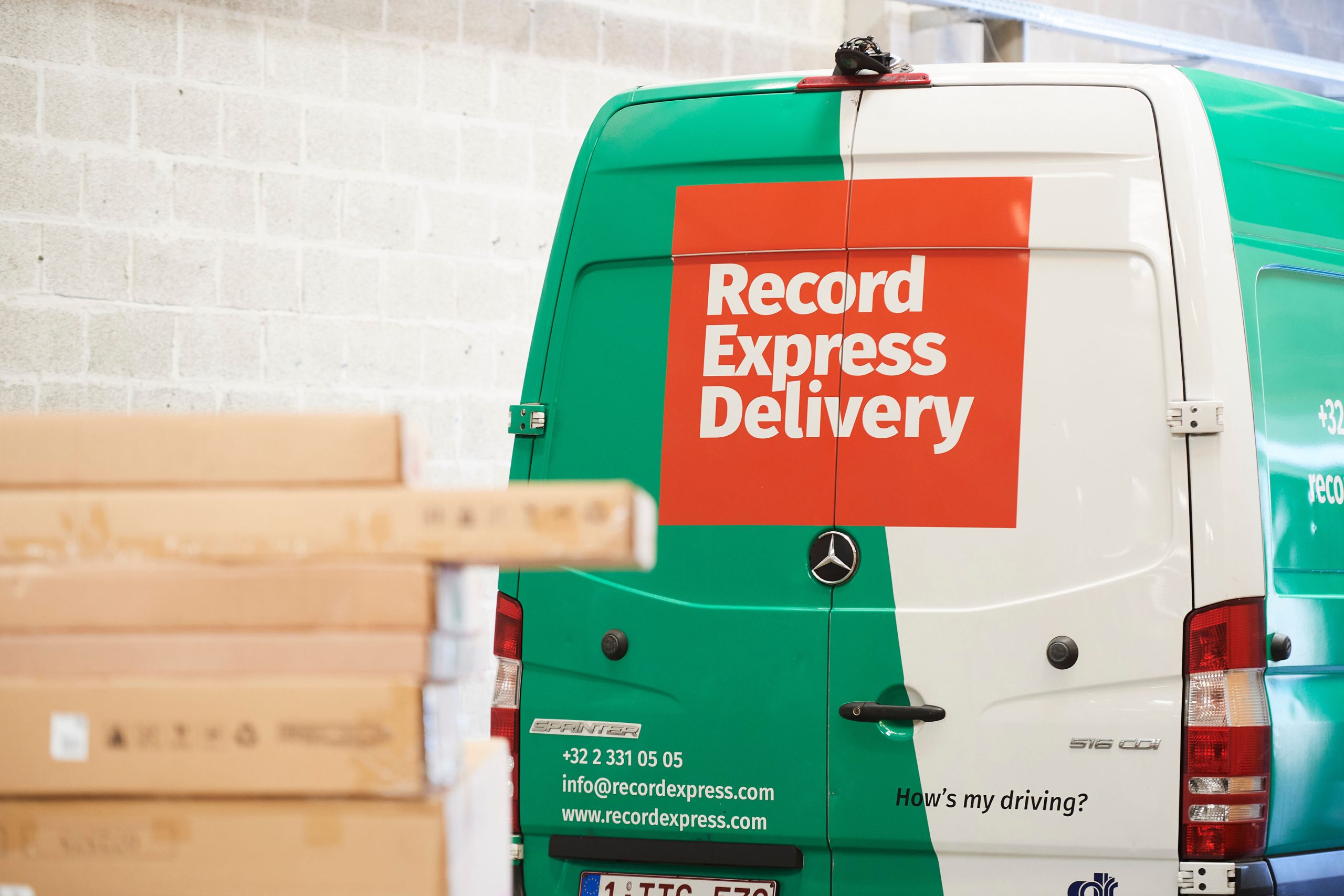Conformité de la logistique : Lois et normes
La conformité logistique fait référence aux lois, réglementations et normes qui régissent la manière dont les marchandises sont stockées, transportées et livrées à travers les chaînes d'approvisionnement. ENVOYER LE COLISHome / Logistique du commerce électronique / Conformité de la logistique : Lois et normes

Conformité de la logistique : Lois et normes
TL;DR : La conformité logistique fait référence aux lois, réglementations et normes qui régissent la manière dont les marchandises sont stockées, transportées et livrées à travers les chaînes d’approvisionnement. Dans l’UE, la conformité logistique couvre les règles douanières, les réglementations en matière de sécurité, les normes environnementales et les certifications telles que celles des opérateurs économiques agréés (OEA) et de l’ISO. Pour les opérateurs belges, la conformité garantit la fluidité des échanges, réduit les risques et renforce la confiance des régulateurs et des clients.
Qu’est-ce que la conformité logistique ?
La conformité logistique consiste à s’assurer que les opérations de la chaîne d’approvisionnement répondent aux exigences légales, réglementaires et sectorielles(Commission européenne). Cela va de la documentation douanière à la sécurité des produits, en passant par le droit du travail et la durabilité environnementale.
- Respect des règles douanières et commerciales pour les importations/exportations
- Respect des normes de santé et de sécurité dans les transports
- Protection des données (GDPR) dans le traitement des informations relatives aux envois
- Obligations environnementales telles que la réduction des émissions
- Préparation à l’audit grâce à une documentation appropriée
À emporter : La conformité garantit le bon déroulement, la légalité et la transparence des opérations logistiques, réduisant ainsi les risques de retards, d’amendes ou d’atteintes à la réputation.
Pourquoi la conformité de la logistique est-elle importante dans l’UE ?
La conformité est essentielle dans l’UE car elle permet d’harmoniser les règles commerciales entre les États membres tout en protégeant les consommateurs, les entreprises et l’environnement(CNUCED).
- Le marché unique de l’UE repose sur des normes cohérentes
- La non-conformité peut entraîner des amendes, des saisies de cargaisons ou des sanctions juridiques.
- Les entreprises sont confrontées à des risques de réputation en l’absence de conformité
- Les contrats importants exigent souvent la preuve de la certification de conformité
- Les objectifs en matière de développement durable et d’ESG (environnement, social, gouvernance) dépendent des cadres de conformité.
À retenir : Dans l’UE, la conformité logistique n’est pas facultative, elle est essentielle au commerce légal et à l’avantage concurrentiel.
Quels sont les principaux domaines de conformité en matière de logistique ?
Les domaines de conformité couvrent les douanes, la sécurité, la sûreté, l’environnement et les réglementations du travail(OCDE).
- Douanes : Règles d’importation et d’exportation, TVA et droits d’accises
- Sécurité : ADR pour les marchandises dangereuses, normes pour les véhicules
- Sécurité : Certification OEA, intégrité de la chaîne d’approvisionnement
- Environnement : Green Deal de l’UE, rapports sur le carbone
- Travail : Heures de conduite et normes de sécurité des travailleurs dans l’UE
Ces règles s’appliquent différemment selon le type de transport, le secteur d’activité et la destination, ce qui oblige les prestataires de services logistiques à s’adapter en permanence.
À retenir : La conformité est un processus à plusieurs niveaux, qui va des douanes aux droits des travailleurs et qui a un impact sur les performances logistiques.
Quelles sont les certifications importantes pour la conformité de la logistique de l’UE ?
Les certifications démontrent que les prestataires logistiques respectent des normes de conformité et de qualité définies(Commission européenne – Fiscalité et douanes).
- OEA (opérateur économique agréé) : Statut d’opérateur de confiance simplifiant les procédures douanières
- ISO 9001 : Certification de la gestion de la qualité
- ISO 14001 : Certification de gestion environnementale
- PIB : Bonnes pratiques de distribution pour les produits pharmaceutiques
- SA8000 : Norme de responsabilité sociale pour le travail équitable
Ces certifications offrent des avantages concurrentiels en signalant la fiabilité et la conformité aux partenaires et aux régulateurs.
À emporter : Les certifications de conformité attestent de la fiabilité, de l’efficacité et de la conformité d’un fournisseur de services logistiques aux réglementations européennes.
Quels sont les risques de non-conformité ?
La non-conformité expose les opérateurs logistiques à des risques financiers, juridiques et de réputation(Cour des comptes européenne).
- Amendes et pénalités imposées par les autorités de régulation
- Retards dus à des saisies ou inspections douanières
- Perte de contrats avec des clients soucieux de la conformité
- Atteinte à la réputation affectant la valeur de la marque
- Responsabilités juridiques en cas d’accidents ou de pratiques dangereuses
Sur les marchés concurrentiels, la non-conformité peut signifier la perte d’opportunités commerciales au profit de rivaux qui font preuve d’une meilleure gouvernance et d’une plus grande fiabilité.
À retenir : La non-conformité coûte bien plus cher que l’effort de maintien des normes – l’évitement des risques est un argument commercial essentiel en faveur de la conformité.
Comment la technologie favorise-t-elle la conformité ?
Les outils numériques facilitent la mise en conformité en automatisant la tenue des registres, l’établissement des rapports et la gestion des risques(IBM).
- Systèmes automatisés de déclaration de douane et de TVA
- Capteurs IoT pour le suivi de la température, de la localisation et de la sécurité
- La blockchain pour une documentation infalsifiable
- L’IA pour la prédiction des risques de conformité et la détection des anomalies
- Plateformes en nuage pour des audits de conformité collaboratifs
La technologie réduit les erreurs, améliore la transparence et garantit une visibilité en temps réel de la conformité dans les chaînes d’approvisionnement mondiales.
À retenir : La technologie transforme la conformité d’une charge manuelle en un processus intégré et proactif.
Comment Record Express assure la conformité en Belgique
Record Express intègre la conformité dans ses opérations de messagerie et de logistique afin de soutenir ses clients en Belgique et dans l’ensemble de l’UE.
- Services de messagerie conformes à la législation douanière avec aide à la documentation
- Respect des normes GDP, ISO et OEA de l’UE, le cas échéant
- Protection des données alignée sur le GDPR dans le suivi des expéditions
- Des pratiques logistiques vertes conformes aux objectifs de l’UE en matière de développement durable
- Livraisons conformes et dans les délais à Bruxelles, Anvers, Gand et dans tout le pays.
En faisant de la conformité une valeur fondamentale, Record Express réduit les risques pour les clients et les aide à respecter leurs propres obligations légales et réglementaires.
🔗 Lecture connexe :
- Conformité douanière pour les livraisons internationales
- Services de dédouanement pour les entreprises
- Services logistiques sous douane dans l’UE
- Pratiques logistiques durables
- Logistique pharmaceutique et chaîne du froid
FAQ
1. Qu’est-ce que la certification OEA ?
Un statut de commerçant de confiance dans l’UE qui simplifie les procédures douanières et démontre la conformité.
2. Les entreprises de logistique ont-elles besoin d’une certification ISO ?
Les normes ISO ne sont pas obligatoires, mais elles garantissent une gestion de la qualité et de l’environnement.
3. Comment le GDPR affecte-t-il la conformité logistique ?
Elle exige un traitement sécurisé des données relatives aux expéditions et des informations personnelles dans les systèmes logistiques.
4. Les règles environnementales de l’UE sont-elles contraignantes pour la logistique ?
Oui, les opérateurs doivent respecter les règles en matière d’émissions, de développement durable et de réduction des déchets dans le cadre du Green Deal.
5. Record Express respecte-t-il les normes logistiques de l’UE ?
Yes-Record Express s’aligne sur les réglementations de l’UE, les normes ISO et le GDPR pour soutenir les opérations conformes.
Sources d’information

Record Express was awarded a 59/100 score by EcoVadis, the global leader in sustainability ratings.